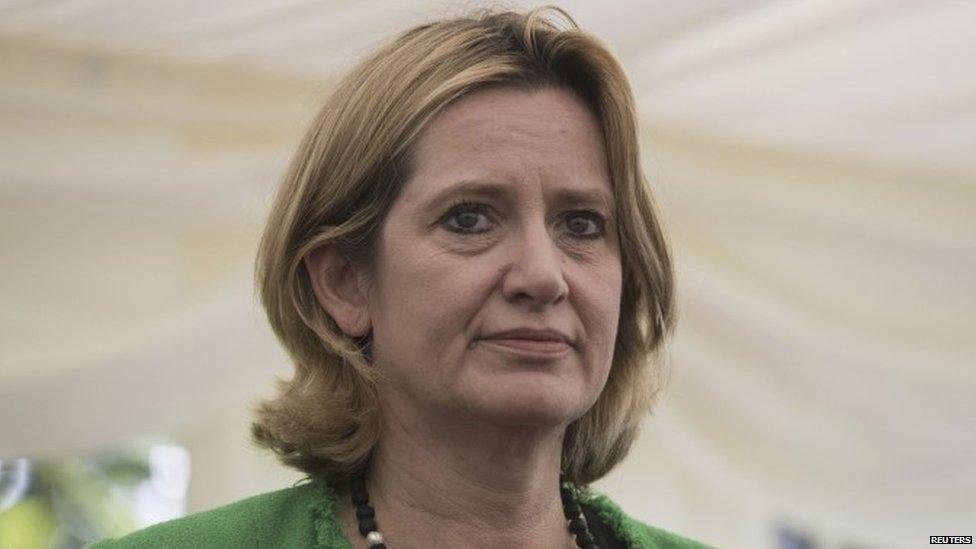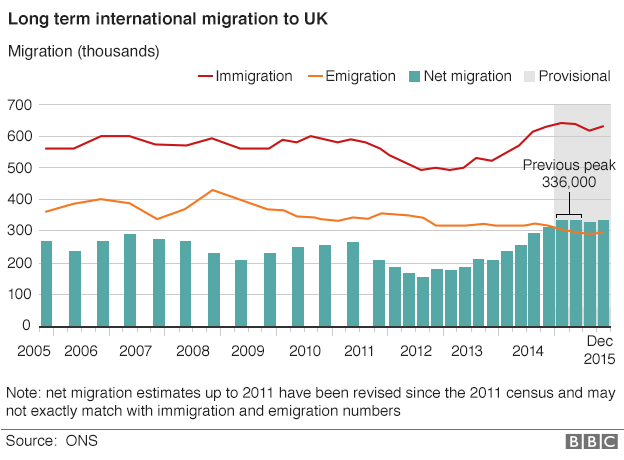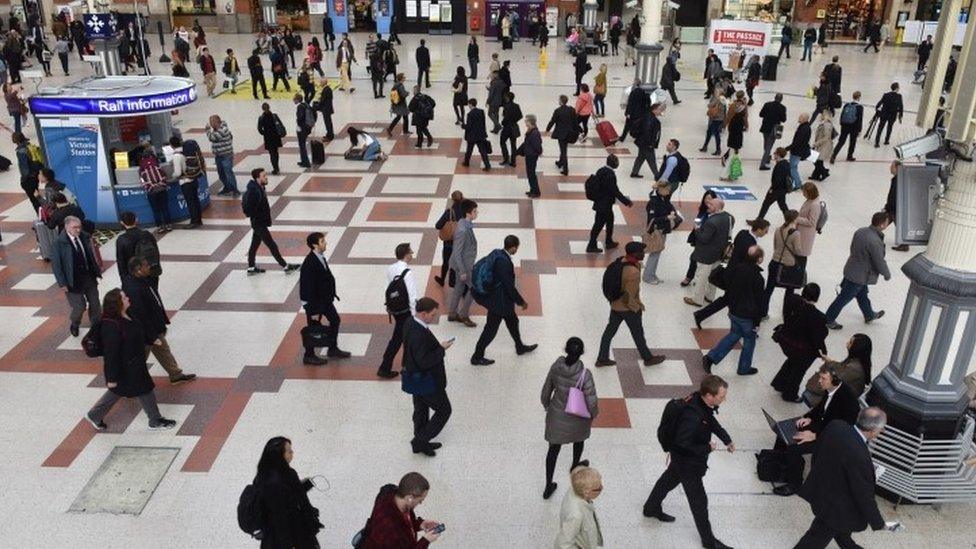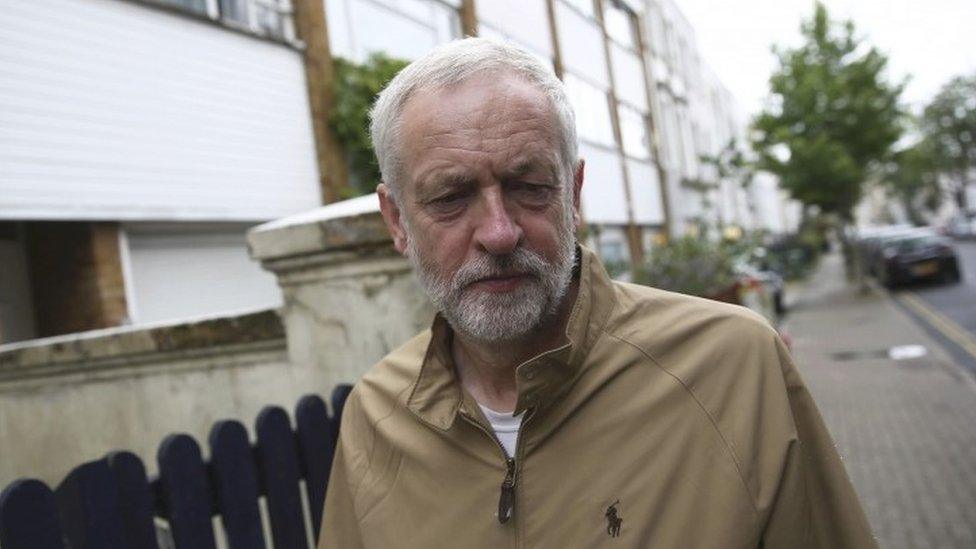Amber Rudd aiming for 'sustainable' levels of UK migration
- Published

Amber Rudd succeeded Theresa May at the Home Office following the latter's move into Downing Street
Home Secretary Amber Rudd has said her goal is to bring immigration down to "sustainable levels".
Ms Rudd declined to be drawn on whether the government was still committed to reducing annual net migration to the tens of thousands.
The target was missed during the last Parliament, with net migration exceeding 330,000 in 2015.
The Lib Dems said the target had been "ditched" while Labour has called for a Commons statement on the matter.
But Downing Street said there was no change of policy and in Theresa May's view "sustainable levels does mean the tens of thousands". A No 10 spokesperson said Ms Rudd's "approach and language" was the same as that used by the Home Office in the past.
Immigration was the Leave campaign's key argument during the EU referendum. They pointed to David Cameron's failure to meet his own targets as evidence that being a member of the EU was incompatible with the UK having full control over its borders.
Figures such as Boris Johnson and Liam Fox, who are now in the cabinet, called for an end to the unqualified right of EU citizens to live and work in the UK, saying Parliament should determine annual numbers from both inside and outside the EU through an Australian-style points system.
Political pressure
Although Mrs May and Ms Rudd campaigned to remain in the EU, they will be under political pressure to ensure that Brexit results in lower immigration levels - with the prime minister insisting free movement into the UK for EU citizens will end after Brexit.
However, it is unclear at this stage whether this can be delivered and Ms Rudd's remarks have cast doubt about whether existing targets on immigration will be retained during the period of negotiations over EU exit - which are likely to take several years.

While in the Home Office, Mrs May insisted she remained committed to reducing levels of net migration - the difference between the number of people settling in the UK and those emigrating - to under 100,000 a year.
But during her six years as home secretary, Mrs May failed to come close to meeting the target, first set by David Cameron while the Tories were in opposition and reiterated in the party's 2015 general election manifesto.
The latest figure for 2015 showed net migration at 333,000 - its second highest level on record.
'My aim'
Ms Rudd, who criticised Leave campaigners such as Boris Johnson for their pledges on immigration during the referendum, said the government's goal was to see manageable levels of immigration but did not spell out what they were.
"What the prime minister has said is that we must bring migration down to sustainable levels so that's what is going to be my aim at the moment," she told the BBC.
Pressed on whether the net migration target had, in effect, been scrapped, she replied: "I'm going to stick to my comment which is about bringing it down to sustainable levels. That has to be the most important thing for the country."
Asked whether her comments represented a U-turn, Foreign Secretary Boris Johnson said his colleague was "entirely right to be careful about committing to numbers" because the government "does not want to be in a position where we are disappointing people again".
But he said the UK would absolutely be able to exercise greater control over migrant numbers once it leaves the EU.
The prime minister has indicated the UK will not commence official talks on leaving the EU this year.
This was confirmed during a Court hearing on Tuesday into whether the government requires the authorisation of Parliament before it can trigger Article 50 of the Lisbon Treaty and begin the formal, legal process of leaving the EU.
Outgoing UKIP leader Nigel Farage has said the UK should be aiming to bring net migration back down to "normal" post-war levels of no more than 50,000, saying the existing system discriminates against skilled workers from the Commonwealth and the rest of the world.
Critics question how realistic this is given the reliance on migrant labour of certain sectors of the economy, domestic skills shortages and the hostility of many employers to annual migrant limits. They also say it would require a big reduction in non-EU migration.
- Published26 May 2016

- Published19 June 2016
